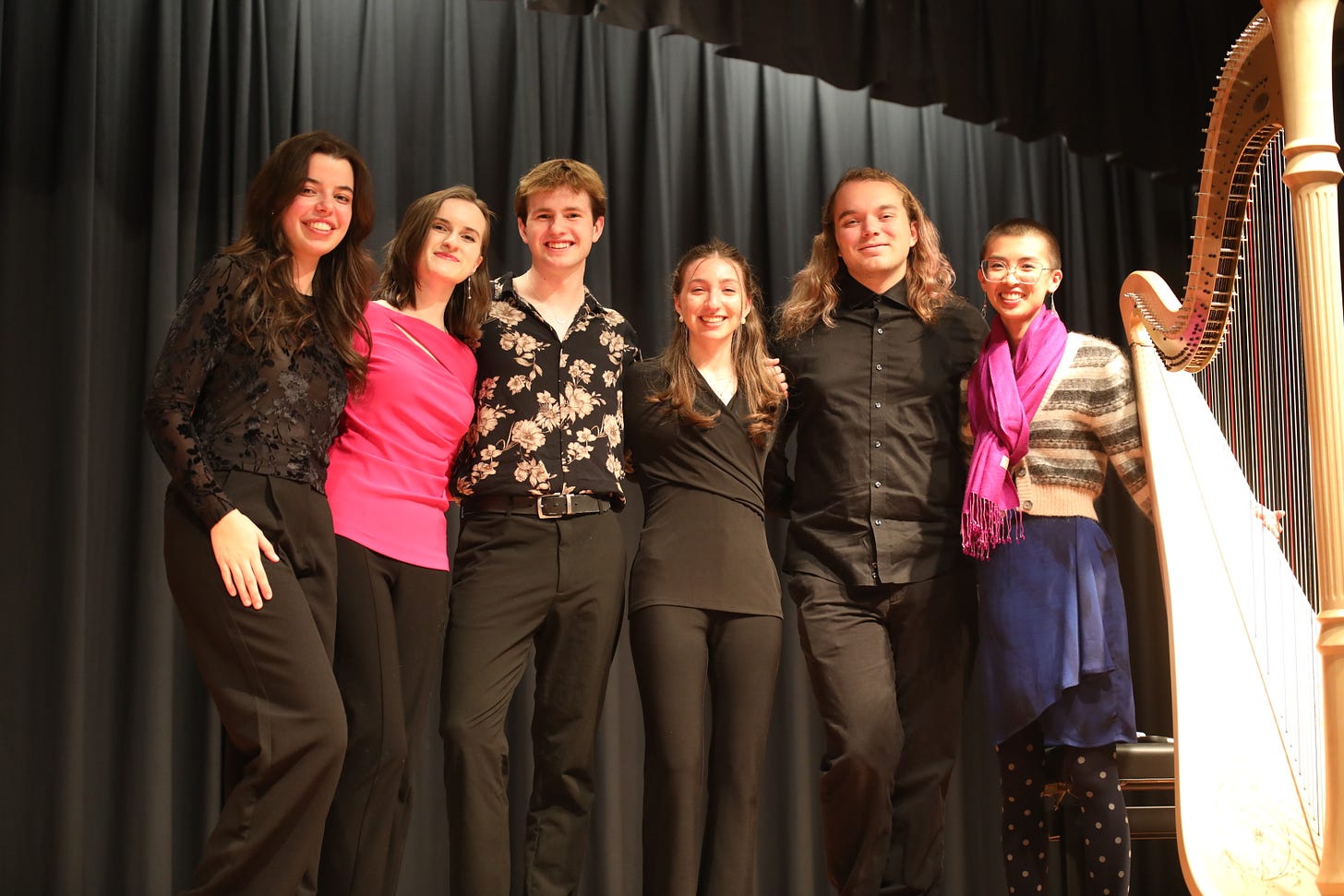At the beginning of this year, I started this Substack with the intent of sharing thoughts that haven't had a place to linger in real life. They are the kinds of thoughts that one has in passing moments of connection with friends and colleagues; thoughts shared over a coffee, a meal, a drink. They are creeping tendrils of new greenery—curling tightly like the fingers of a child, grasping wholly with the hope that we are all here to hear, that we hear to be here.
I haven't written as much as I initially intended as my schedule has gotten busier, compounded by more frequent urges to rest in the wake of prolonged burnout. However, the silences in between (news)letters express more an uncertainty of how to shape a particular thought rather than an absence of any. Writing renders a moment of inspiration into an immutable object susceptible to weaponizing or misunderstanding. So, writing is difficult because one wants to get the words just right, and writing is vulnerable because one can't always get the words just right.
For my final newsletter of 2024, I've decided to keep things simple with a few updates and half-formed ideas that I'll be taking with me into the new year. I'm grateful to all who have been reading over the past year, and I always appreciate hearing from those of you who have found something I've named—a word, phrase, a sentence, a feeling—relevant to your own artistic or personal journey.
there's no place like home, but which one?
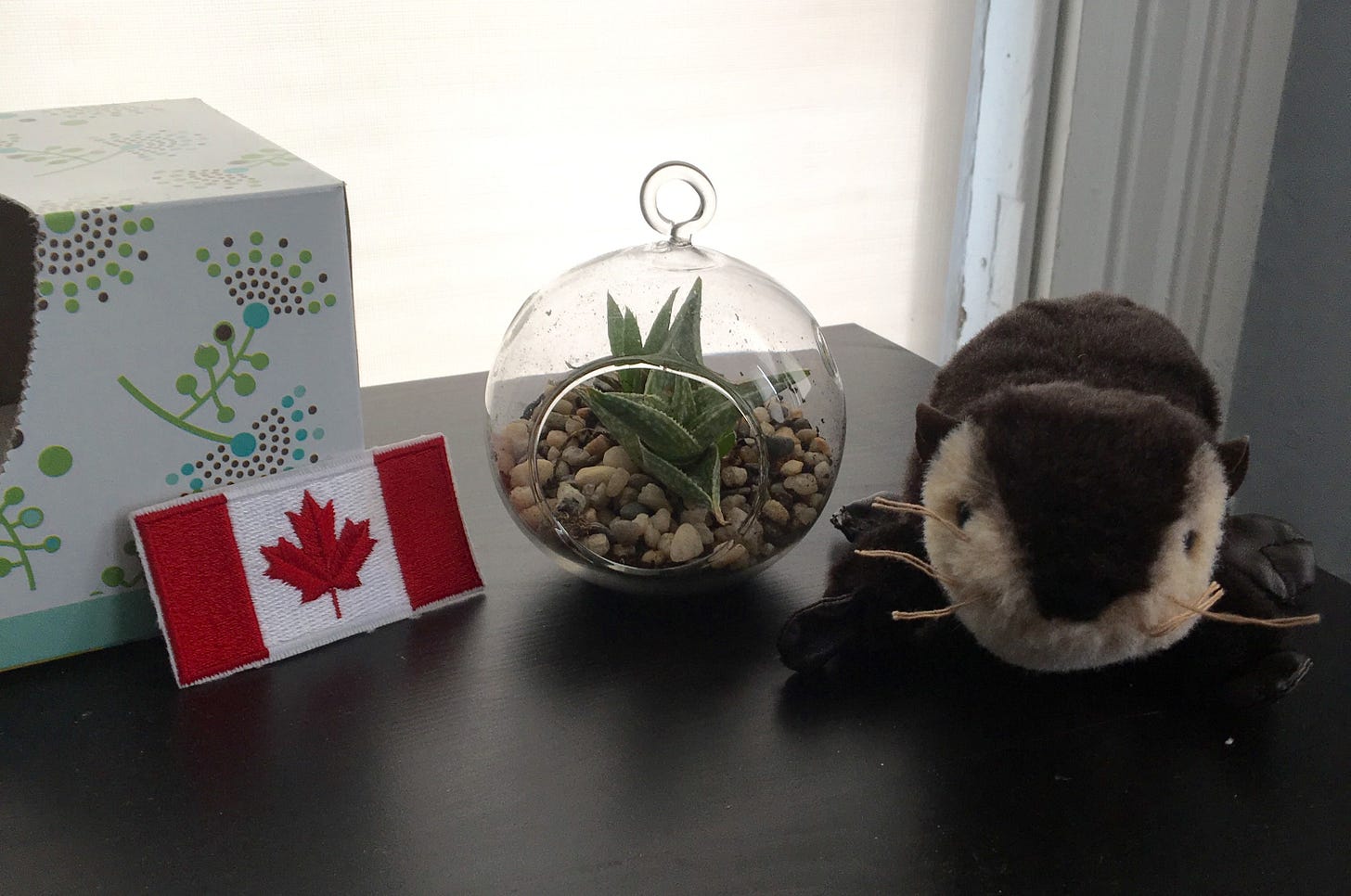
In 2019, I immigrated to another country to make a life with the person I promised to love and cherish ‘til death do us part. I was already a child of immigrants, growing up with a strange detachment around the feelings of home, culture, and nation. Becoming an immigrant myself caused those feeling to resurge, but now having a fully-developed/adult prefrontal cortex made processing those feelings more complicated.
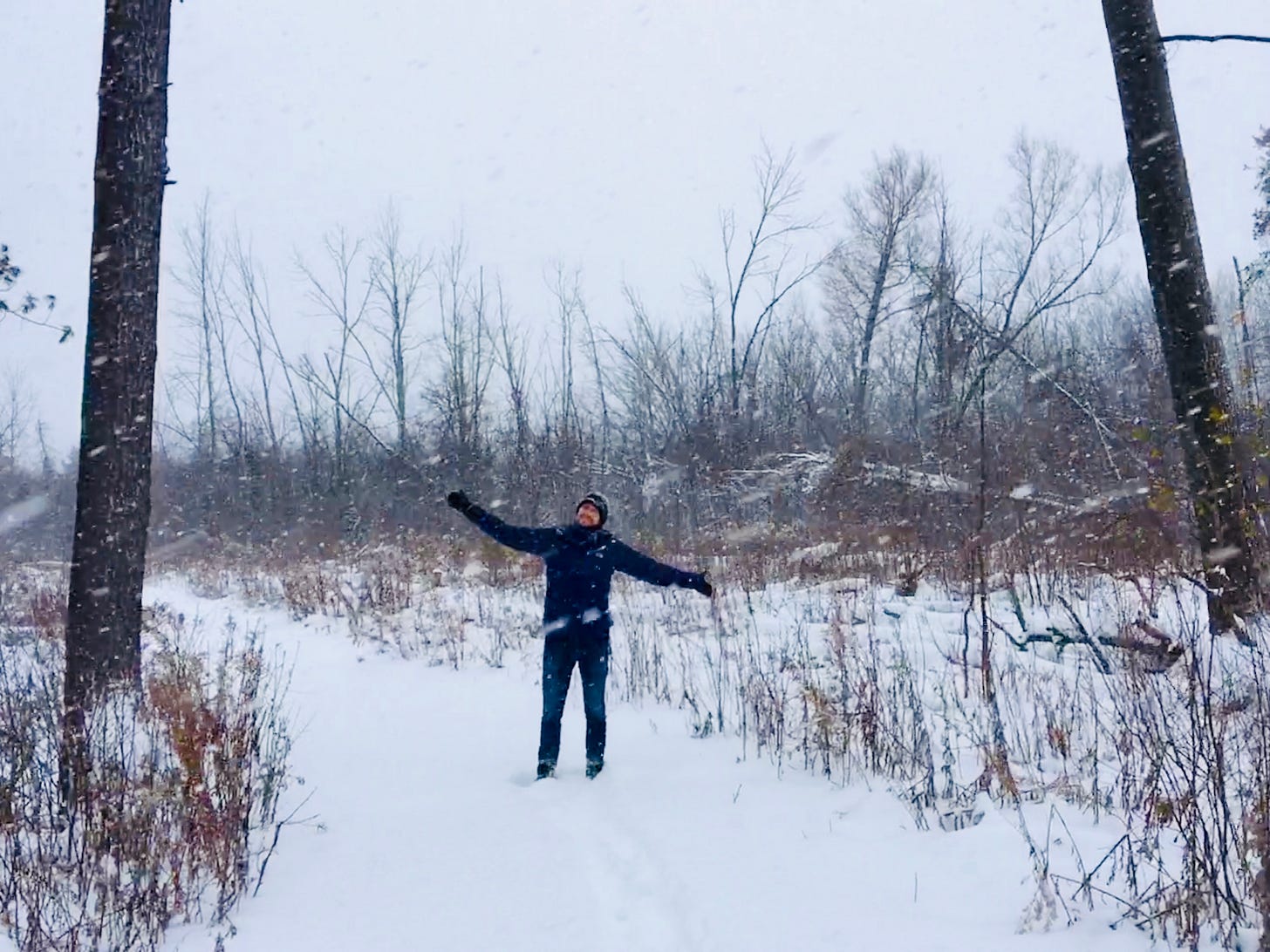
Canada didn't end up being as permanent as I thought, but Patrick is still here, which means I feel a responsibility to be here, too. So, as of last Tuesday, I officially became a Canadian; it felt as much an affirmation to be faithful to the Crown as it was an affirmation to continue making a life with my spouse even as we navigate two households (literally two houses) in different countries.

Moving forward, I'm still trying to be present in the Canadian arts scene as much as possible, since it feels important to participate in the making of Canadian music and arts/humanities research. I'm excited for an upcoming electroacoustic harp project with my friend Paolo Griffin who is a fierce advocate for new music in Toronto (and released a very exciting album earlier this year). This past fall, I connected with the folks at the Public Visualization Lab/Studio (OCAD, TMU, YorkU) who invited me to participate in a fun installation for the ExMeLab exhibit at ASU in April.
Finally, I am extremely excited that the next World Harp Congress will be in Toronto and that I will be able to perform—whether under the auspices of the USA International Harp Competition or otherwise—as a Canadian and to represent Canadian artistry (Judy Loman was also born in the US—don't forget!!!) around the world. I'm already very proud to bring perspectives as a diasporic Taiwanese-American to the table and look forward to adding a third cultural perspective to my work.
asst prof of harp/entrepreneurship continues
It's hard to believe I'll be finishing my third year at FSU by the end of the spring. I'm still figuring out what I want to do with the long-term direction of the harp program, but in the meantime, I feel so grateful for the support of my colleagues and administration while rebuilding my studio. Recruitment has gotten better each year, and I can't wait to work on some course revisions that will be launched either next fall or spring.
While I was still doing the DMA, I often wondered whether I'd really be content just teaching harp, given my intellectual restlessness and persistent desire to study anything but classical music. This job at FSU has been in many ways perfect, since it has given me the opportunity to be someone besides “the harp person,” and better yet, it forces me to learn new things every semester. For the benefit of my entrepreneurship students, I've also tried to push myself to put theory to practice, so my approach to my own performing career has changed (I think for the better) as a result.
One very small but groundbreaking concept I learned in my first year teaching my class is the value proposition. In business, a value proposition is simply a benefit (or set of benefits) that makes one company/product differ from its competition. So, one could call it a competitive advantage, but it's not necessarily measuring in terms of “best.” For example, the value proposition of one product may be cost value: it's the cheaper one on the grocery shelf. The VP of another may be quality (made with luxury materials, made to be highly durable), though the cost may be higher. The VP of another may be quantity or convenience or customizability—the list goes on. Essentially, a VP is always tied to fit with customer segments. For example, a customer who is interested in durability may not care as much or at all about price; hence, no matter how hard the low-cost option tries to advertise its low prices to that customer, the sale won't happen because cost isn't what matters to that customer.

Most of my strategic planning around my career or FSU-related programming is rooted in the logic of the value proposition. What kind of music do I actually enjoy? What sets me apart from other performers? Who are untapped “customers” (audiences) that would be interested in what I have to offer? These questions help me feel less insecure about the ways my career hasn't conformed to the success narratives in classical music (winning an orchestra job, being a concerto soloist, getting signed to an agency or label) and lean into the kind of work I genuinely enjoy. I don't think of it at all as half-assing a performing career; if anything, it helps me embrace the parts of myself that never quite fit in and use those at an advantage.
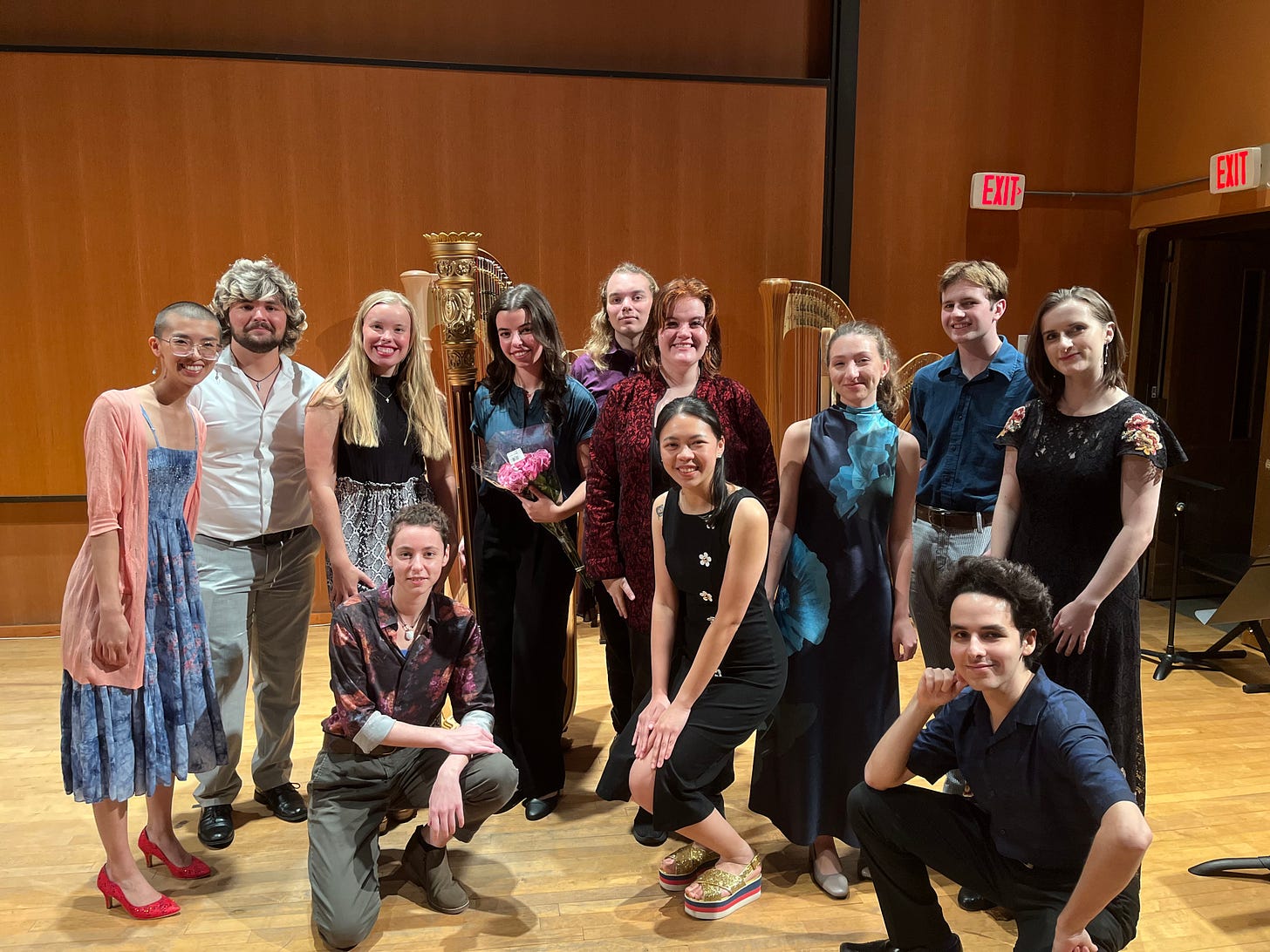
With the FSU harp program, I have the same strategy—thinking about the unique educational experience my program offers/can offers and the type(s) of student I'd want to serve or who would benefit most from studying with me. This approach does mean winnowing out some students who don't mesh with my program's value proposition (mixed technical methods, advanced solo repertoire study, exposure to different genres, alternative pedagogies, strong critical thinking/research expectations, emphasis on social impact and leadership). Ultimately, the harp is just a tool—really, one of many—that my students can use to communicate their ideas to the world. imo, playing well is simply knowing how to use that tool adeptly; at the end of the day, though, it's still just a tool.
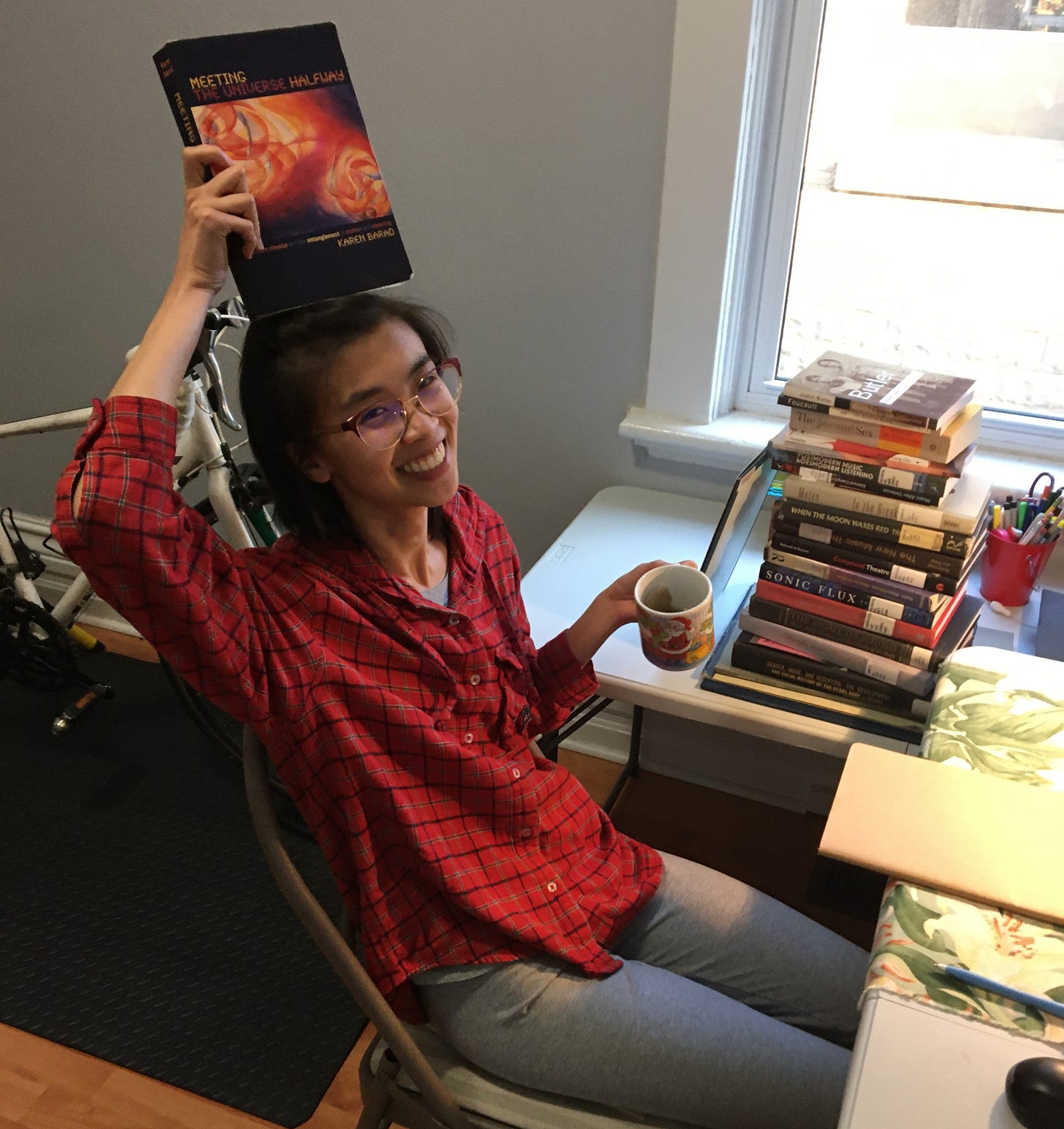
Lastly, I have grand plans for new things (mainly one new thing) I want to start on the entrepreneurship side of my job; however, it's still very much in the discussion phase. As someone reads and thinks omnivorously, I'd really like for performance students at FSU to have the chance to learn how to connect science & humanities research (theories and methods) with artistic practices. I felt quite out of place writing my dissertation, since this style of interdisciplinary research isn't common at all in US conservatory-style music programs. So, it would be amazing to spearhead a course that gets performers first thinking critically about the social and cultural structures underpinning their own artistic practices, then challenging them to create a performance object or event that addresses those inquiries.
the fork in the road
Fugitivity, then, is a desire for and a spirit of escape and transgression of the proper and the proposed. It’s a desire for the outside, for a playing or being outside, an outlaw edge proper to the now always already improper voice or instrument. (Fred Moten, Stolen Life)
After several instances of burnout this year, I've decided that it's time to make some difficult decisions about the amount and type of performing I want to continue doing over the next few years.
First, I'd like to gradually phase out recitals of standard-ish solo rep, for many reasons:
Solo programs of 50-80 minutes of memorized music are very exhausting to maintain, especially since I have so many other things on my plate these days. I have also been frank about dealing with performance anxiety (usually leading to stupid memory slips) that makes performing not enjoyable.
Presenters who ask for them—oftentimes harp organizations—usually pay little to no fee. Putting in hours and hours of practicing for a concert that pays peanuts feels very frustrating; even if travel is partially or fully covered, I end up losing money due to other expenses (e.g., cat-sitting is expensive).
The rep that classical audiences want to hear doesn't interest me, or I feel like I have to constantly advocate the harp to non-harpist classical audiences (who are otherwise very patronizing—”oh, the harp is so angelic!”). I've reached the point where I don't have the emotional energy to do this anymore.
In place of recitals, I'm looking forward to working on more standalone projects that feel more musically or intellectually satisfying:
My FSU colleague Liliya Ugay wrote me a piece “pull no more” that I've played several times already and will a few more times in 2025
My other FSU colleague Cliff Callender is also working on a new solo acoustic harp piece and has sketches for another very cool one for EA harp
I'm collaborating with my ASU colleague Tra Bouscaren on a harp he's building for me (learn more about his exhibit here), which will be launched in March 2025
I'm planning to spend summer 2025 writing material for The Mother's Teeth and will try to put together a concert-length set for 2025-26
Caroline Lizotte is working on a piece for flute and EA harp that will probably be premiered in Fall 2025 or Spring 2026 (and very likely at the WHC).
While I won't stop playing solo recitals and probably never could, the reality is it feels neither financially sustainable nor personally nourishing, nor does it overlap with the artistic communities I am drawn toward (sound studies, experimental music, cultural theory) and the type of professional profile I'd like to build. The classical music industry, especially in North America, is not and has not been kind to harpists, especially when they are also undutiful daughters. Where then does one go to feel at home?
Maybe Fred Moten has a point, and the answer is to be OK being fugitive—always rooted from the outside. It is to live a stolen life, which is to say, a stolon life.
✨ Noël Éternel 🎅🏼 🎄
This week's Corner of Wondrous and Powerful
📚 A MUST READ: “The Ghosts in the Machine” by Liz Pelly. Excerpted from her forthcoming book about Spotify and the music streaming industry. I've already pre-ordered the book.
Probably pairs very well with Marshall McLuhan's Understanding Media (“The medium is the message”). I try very hard and fail—because this concept is really hard to grasp for young musicians who just want to get their music out there—to get my entrepreneurship students to think about media as technological structures instead of artistic content.
There's nothing inherently wrong with mood music, but streaming services have essentially turned all music into potential mood music—classical music being one of the genres especially vulnerable to this phenomenon.
👂🏼 Since this album has been making the top albums lists, and I hadn't listened to it before reading about it: Diamond Jubilee by Cindy Lee, unavailable on streaming sites
There's also a strong hauntological vibe (most lofi music), but what I find most impressive is the sheer length (2 hours) and that most people seem to be enthusiastic about listening to the double-track list in its entirety. This kind of music also reenforces the fact that pop(ular) songwriters seem much more capable of wrestling deep pathos in their composition than anything in new classical music these days. Maybe one can argue that classical music has become too urbane to be sincere.
👀 A sort of? Christmas movie: The Umbrellas of Cherbourg (so visually stunning!)
Already recommended but going to recommend again: Going to Mars: The Nicki Giovanni Project. RIP, Nicki Giovanni—I so wish she had been able to make it to FSU.





